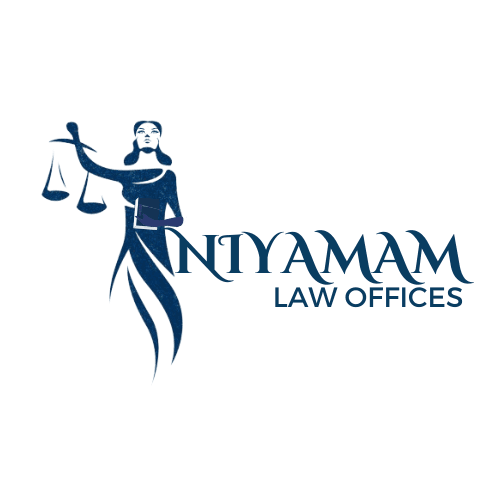Alternate Dispute Resolution (ADR) Lawyer in Delhi – Complete Guide
At Niyamam Law Offices, we understand that legal disputes can be both emotionally draining and financially burdensome. That’s why our team of skilled professionals—led by a seasoned alternate dispute resolution lawyer in delhi—is committed to offering effective ADR services that ensure fair, timely, and cost-efficient resolutions.
What is Alternate Dispute Resolution (ADR)?
Alternate Dispute Resolution (ADR) refers to legal processes that settle disputes outside traditional courts. In India, ADR is legally recognized under the Arbitration and Conciliation Act, 1996, and strongly promoted by courts to reduce delays.
Types of ADR in Delhi
Arbitration – A neutral arbitrator hears the dispute and issues a legally binding award.
Mediation – A mediator facilitates discussion to help parties reach a voluntary agreement.
Conciliation – A conciliator proposes settlement terms acceptable to both sides.
Negotiation – Direct talks between parties to reach a mutually agreeable solution.
Lok Adalats – People’s courts organized under the Legal Services Authorities Act, 1987, offering low-cost, quick justice.
Why Choose ADR Over Litigation in Delhi?
Delhi courts are overburdened, with thousands of cases pending for years. Choosing ADR has clear advantages:
- Time-Efficient – ADR often resolves disputes in months, not years.
- Cost-Effective – Saves litigation costs, legal fees, and court charges.
- Confidentiality – Proceedings remain private, unlike public court records.
- Flexibility – Procedures can be tailored to suit both parties.
Preserves Relationships – Particularly useful in family, business, and partnership disputes where relationships matter.
Role of an ADR Lawyer in Delhi
An ADR lawyer is not just a legal representative but also a strategic advisor who ensures your interests are protected while seeking amicable settlements.
Key Responsibilities:
- Advising clients on the most suitable ADR method.
- Drafting arbitration agreements and mediation clauses.
- Representing clients before arbitration tribunals and mediation centers.
- Ensuring compliance with arbitral awards.
Negotiating settlements that align with legal and business interests.
Testimonials
Trustindex verifies that the original source of the review is Google. Adv ankit helped me for my ongoing divorce case. He knows how to handle these kind emotional turmoil of their clients. He is one of the best divorce lawyer in Delhi so far. I highly recommend him for divorce cases.Posted onTrustindex verifies that the original source of the review is Google. The divorce lawyer in Delhi at Niyamam Law Offices made a very tough time easier for me. Advocate Ankit Kumar was empathetic and patient, and the firm handled everything smoothly. I am very grateful for their support during my case.Posted onTrustindex verifies that the original source of the review is Google. I had a cheque bounce case and was very stressed, but Advocate Ankit Kumar and his team at Niyamam Law Offices handled it with great expertise. He is truly the best cheque bounce lawyer in Delhi. The firm is professional, approachable, and always ready to explain things in simple terms. My issue was resolved much faster than I expected.Posted onTrustindex verifies that the original source of the review is Google. Thanks to Ankit Kumar sir. We won the case in very short time period by his excellent knowledge and experience. Advocate Ankit Kumar is the best divorce lawyer in delhiPosted onTrustindex verifies that the original source of the review is Google. One of my friend recommended Advocate Ankit to hire him as my divorce lawyer and I am truly grateful for that decision. Divorce is never easy, but Advocate Ankit made the entire process far less stressful. He patiently understood my situation, explained my legal options clearly, and guided me through every step of the proceedings. What sets him apart is his blend of professionalism and empathy. He was always approachable, answered my queries without delay, and gave me complete confidence in his strategy. My case involved complex issues of property division and alimony, yet he handled it with precision and secured a fair outcome for me. I would strongly recommend Advocate Ankit to anyone in need of a reliable, compassionate, and highly skilled divorce lawyer in Delhi. His expertise and commitment make him one of the finest family lawyers I have ever met.Posted onTrustindex verifies that the original source of the review is Google. I consulted Advocate Ankit from Niyamam Law Offices during a very difficult phase of my life, and I can confidently say he is one of the best divorce lawyers in Delhi. From the very first meeting, he patiently listened to my concerns, explained the legal process in detail, and gave me the confidence to move forward. My case involved not only divorce but also child custody and maintenance, and he handled everything with professionalism and compassion. What impressed me most was his transparent approach—he kept me informed at every stage, never gave false promises, and ensured that my interests were always protected. His expertise in family and matrimonial law, combined with his courtroom skills, helped me achieve a fair and timely resolution. If anyone is looking for a trusted divorce lawyer in Delhi, I would strongly recommend him. Thank you Advocate Ankit for my case.Posted onTrustindex verifies that the original source of the review is Google. Niyamam law handled my legal issue with professionalism and care. Highly Recommend!Posted onTrustindex verifies that the original source of the review is Google. "If you are looking for a property lawyer in Delhi,Niyamam Law offices is the best choice. Advocate Ankit Kumar handled my property dispute with the legal process clearly and ensured my rights were fully protected.I felt very secure with his advicePosted onTrustindex verifies that the original source of the review is Google. I searched online for the top lawyer in Delhi and found Advocate Ankit Kumar of Niyamam Law Offices. From the first meeting itself, I felt confident about my case. He has deep knowledge of law and represents clients with full commitment. The entire firm works very professionally
ADR Legal Framework in India
An ADR lawyer in Delhi operates under specific statutes and guidelines:
Arbitration & Conciliation Act, 1996 (amended in 2015, 2019, and 2021).
Commercial Courts Act, 2015 – Encourages pre-litigation mediation.
Legal Services Authorities Act, 1987 – Provides Lok Adalats for speedy resolution.
Delhi High Court Mediation and Conciliation Centre – Known for handling mediation cases effectively.
Types of Civil Disputes We Handle
Arbitration in Delhi – Why It Matters
Delhi has positioned itself as a preferred arbitration hub in India. The Delhi International Arbitration Centre (DIAC) provides world-class facilities for domestic and international arbitration. Many businesses now insert “Delhi as the seat of arbitration” in their contracts due to its credibility.
An ADR lawyer in Delhi can represent clients in DIAC proceedings, ensuring compliance with rules and delivering favorable outcomes.
Mediation & Conciliation in Delhi
Mediation is becoming the most popular ADR method, especially in family disputes and commercial conflicts. The Delhi High Court Mediation Centre (Samadhan) has resolved thousands of cases successfully.
Hiring a skilled ADR lawyer ensures that your case is presented effectively while maintaining harmony between parties.
Negotiation – The First Step in ADR
Before arbitration or mediation, most disputes start with negotiation. An experienced ADR lawyer ensures that negotiations are fair, balanced, and protect your interests. This often helps avoid escalation to arbitration or court.

Steps in ADR Proceedings in Delhi
Consultation – Discuss dispute details with your ADR lawyer.
Agreement to Arbitrate or Mediate – Drafting necessary clauses.
Appointment of Arbitrator/Mediator – As per mutual consent or institutional rules.
Proceedings & Hearings – Presentation of claims, defenses, and evidence.
Settlement/Arbitral Award – Binding decision or negotiated settlement.
Enforcement – ADR lawyers assist in enforcing awards through Delhi courts if required.
Benefits of Hiring a Local Delhi ADR Lawyer
- Familiarity with Delhi High Court and District Courts.
- Proximity to arbitral institutions and mediation centers.
- Easy access to government bodies, regulators, and law enforcement in Delhi.
Network with other professionals like chartered accountants, mediators, and legal experts.
Why Choose Us?
Expert Knowledge
Familiarity with Indian arbitration laws and international ADR practices.
Court Connectivity
Strong coordination with Delhi High Court and other legal forums.
Local Experience
Understanding of regional dispute trends and industry-specific conflicts.
Efficient Handling
From drafting agreements to enforcing awards, everything is managed professionally.
Why Businesses in Delhi Prefer ADR
Many corporates, startups, and multinational companies in Delhi NCR prefer ADR because:
- Litigation delays hamper business operations.
- Confidentiality protects brand reputation.
- Cross-border disputes can be resolved via international arbitration seated in Delhi.
- Saves time and legal costs compared to lengthy commercial suits.
Frequently Asked Questions
Arbitration results in a binding award, while mediation helps parties reach a mutual settlement without binding force unless signed into agreement.
Simple cases may be resolved in a few weeks, while complex disputes may take a few months.
Yes, arbitral awards are enforceable as court decrees under the Arbitration Act.
Yes, but only under limited grounds like fraud, bias, or procedural errors.
Mediation is collaborative and cost-effective; arbitration is more formal and binding.
